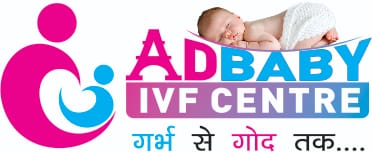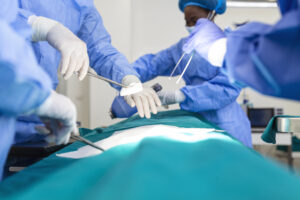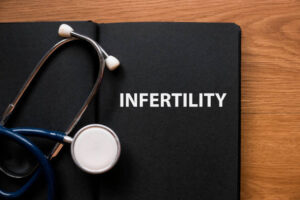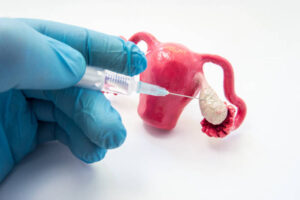When it comes to In Vitro Fertilisation (IVF), most couples ask, “What are the chances of success?” While IVF has helped millions of families worldwide, its success is not guaranteed and depends on several important factors. Age, egg and sperm quality, lifestyle choices, and even the expertise of the fertility clinic can all influence the outcome. Understanding these factors sets realistic expectations and empowers couples to make informed decisions during their fertility journey. In this article, we will explore the key elements that play the most significant role in determining IVF success rates and how to improve your chances.
What “IVF Success Rate” Really Means
The term “IVF success rate” can mean different things. It is essential to know precisely what the number is measuring:
- The live birth rate is the most critical number for patients. It can be measured per cycle started or per embryo transfer. It tells you the real chance of having a baby.
- The clinical pregnancy rate is a different measure. It counts pregnancies that are confirmed by an ultrasound scan. However, this number does not guarantee the pregnancy will continue to a live birth.
- The cumulative success rate shows your chance of having a baby over several IVF attempts. It includes using both fresh and frozen embryos from one cycle. It gives you a more complete picture of your overall odds.
Always ask your clinic: “What kind of success rate is this? Live birth or clinical pregnancy? Fresh or frozen? Own eggs or donor eggs? What’s the denominator (cycles started vs embryo transfers)?”
Key Factors That Affect IVF Success Rates
These are the major determinants:
- Age of the woman
- The number and quality of a woman’s eggs decrease as she gets older. This decline becomes faster after about age 35. After age 40, the drop is even more significant. Know the best age for IVF here.
- As a woman ages, the risk of chromosomal problems in the embryo also increases. This higher risk makes it more likely for an embryo to fail to implant in the uterus.
- Ovarian reserve & egg quality
- Tests like AMH levels and antral follicle count help doctors check a woman’s egg supply.
- That is correct. Even younger women can have a lower chance of success if they have a low egg supply or poor egg quality. Age is not the only factor that matters.
- Embryo quality / lab protocols
- How embryos are handled is very important. It includes how they are grown in the lab, their quality grade, how they are frozen, and the method used for the transfer. All these steps affect the chance of success.
- Blastocyst transfers, good freezing, modern incubators, and skilled embryologists increase your chance of success.
- Type of cycle (fresh vs frozen)
- A fresh cycle can be affected by the hormone drugs used. Sometimes, a frozen embryo transfer (FET) works better because the uterus is more ready for pregnancy.
- Underlying fertility issues & general health
- Certain health conditions can lower the chances of success. These include PCOS, endometriosis, problems with the uterus, and male infertility issues.
- Other health issues also affect the results. These include thyroid problems, obesity, and lifestyle choices like smoking, drinking alcohol, and high stress levels.
- Clinic & technology
- Clinic experience.
- Lab infrastructure.
- Use of genetic screening (PGT/PGS) where needed.
- Transparency and accurate reporting of success rates.
IVF Success Rates by Age: India-Specific Data & Benchmarks
Here’s what current data and clinic reports of IVF success rate in India tell us, with age stratification, to help you set realistic expectations.
Age group | Approximate Live Birth / Success Rate per IVF Cycle in India* | Notes & Examples |
Under 35 | ~ 50-60% (in favourable conditions) | Clinics report up to ~55-60% live birth rates for women under 35 with good ovarian reserve. Oasis Fertility notes ~55.6% in some single egg-retrieval cycles. |
35-37 years | ~ 30-45% | Drops begin: depending on clinic, protocol, fertility history. Oasis reports ~32.4%; World Fertility Services ~40-50%. |
38-40 years | ~ 20-35% | Significant decline visible. Some clinics report 20-25%. Suryahospitals puts this bracket at ~20-25%. |
Over 40 | ~ 10-20%, often lower depending on health and whether donor eggs are used | At 40-42, rates often ~10-15%; above 42, many reports drop into single digits. Some clinics report 12.6% for < 43, ~3.9% for 43+ in live birth in certain conditions. |
“These success rates are estimates for “own-egg” cycles at good clinics. They are based on typical resources, not the very best available. It is important to remember that each person’s results can be very different.”
The Bigger Picture: India-Wide Averages & Variability
- Many clinics in India report an overall success rate of 30-35% per cycle for an average patient. This number includes people of different ages and with varying reserves of eggs.
- Clinics in big cities and high-end centres often have better results. It is especially true for younger women. Their advanced labs and technology help achieve higher success rates.
- Success rates can vary a lot. This depends on the quality of the embryos, the clinic’s methods, how many embryos are transferred, whether a fresh or frozen cycle is used, and whether genetic screening is done.
Actionable Tips: What You Can Do to Improve Your IVF Success Chances
Here are practical steps you and your doctor can take to increase the probability of success.
- Do a fertility evaluation early
- If you are under 35 but suspect issues (irregular cycles, prior surgeries, etc.), don’t wait.
- Measure AMH, do an ultrasound for antral follicle count, and assess sperm parameters.
- Optimize general health beforehand
- Aim for a healthy BMI. Obesity or very low weight are both detrimental.
- Quit smoking, reduce alcohol.
- Manage chronic conditions (thyroid, diabetes, etc.).
- Choose the right clinic
- Ask for live birth rates by age group.
- Check IVF-ICSI techniques, lab accreditation, and embryology lab transparency.
- Ask about fresh vs frozen embryo results, and donor-egg success if relevant.
- Consider donor eggs or embryos when needed
- Using donor eggs can significantly increase the chance of success for women over 40 or those with a very low egg supply.
- Use advanced techniques appropriately
- Genetic screening of embryos, called PGT-A, can be beneficial for older women. It lowers the chance of the embryo failing to implant and reduces the risk of miscarriage.
- The clinic offers embryo freezing/vitrification, blastocyst culture, and ERA (endometrial receptivity analysis).
- Plan for multiple cycles
- The first IVF cycle might not work. Your chances get better over two or three cycles. Planning your budget and preparing yourself emotionally for the journey is essential. The price for IVF varies from place to place..
- Careful cycle monitoring and personalization
- Individualized stimulation protocols; adjusting for ovarian response.
- Good embryo selection.
- Avoiding transferring too many embryos (risk of multiples), yet sufficient to maximise the chance.
Setting Realistic Expectations
- Under 35: If you are healthy, one cycle can have over a 50% chance of success at some clinics.
- Ages 35-37: The chance is lower, around 30-45%, depending on your health.
- Ages 38-40: The chance drops a lot, to about 20-30% in the best cases.
- Over 40, especially 43+: The chance is very low, often below 10%. Using donor eggs can greatly improve the success rate.
These numbers are just averages. Your personal health, your fertility history, and the clinic you pick will all have a big impact on your own results.
How Advamed Hospital and Specialists Like Dr. Nupur Sharma Improves IVF Success
Choosing a top hospital like Advamed and an expert like Dr. Nupur Sharma is important for your IVF success. Advamed Hospital has a modern lab with the latest equipment. This includes advanced incubators and excellent freezing methods that are vital for embryo health.
Dr. Nupur provides care that is tailored just for you. She makes a treatment plan based on your specific needs to get the best number and quality of eggs.
Choosing a top hospital like Advamed and an expert like Dr. Nupur is essential for your IVF success. Advamed Hospital has a modern lab with the latest equipment, including advanced incubators and excellent freezing methods vital for embryo health.
Dr. Nupur provides care that is tailored just for you. She makes a treatment plan based on your needs to get the best number and quality of eggs.
With Advamed’s advanced technology and Dr. Nupur’s personalized care, you have a significantly higher chance of creating healthy embryos and achieving a successful pregnancy, ensuring you receive the best possible care.
Key Takeaways
- Age is the most important factor. Egg quality and quantity decrease as a woman ages, especially after age 35.
- Clinic quality is also crucial. A good lab with skilled staff and modern methods makes a big difference.
- Donor eggs can change the odds. Using donor eggs can significantly increase the chance of success for older women.
- Your health and lifestyle matter. Improving your health can help you get better results.
- More cycles mean a better chance. Do not expect to succeed on the first try. Your overall chance improves over several cycles.
FAQs
The best age for IVF is usually under 35 years, when egg quality and ovarian reserve are highest. Success rates are significantly better in this bracket. After 35, chances gradually decline, especially after 40.
IVF can succeed in the first attempt, especially for younger women with good fertility health. However, not all couples achieve pregnancy immediately. Cumulative success improves across 2-3 cycles.
In India, IVF treatment is legally allowed up to 50 years for women and 55 years for men. Practically, chances drop after 40 with their own eggs. Donor eggs often extend success possibilities.
Yes, Advamed Hospital Chandigarh provides individualized fertility plans based on age, ovarian reserve, and medical history. Their specialists use advanced lab technology for higher success rates.
Advamed Hospital is known for high-quality embryology labs, transparent success data, and compassionate care. The team emphasizes ethical practices and supports couples through every stage of treatment.











